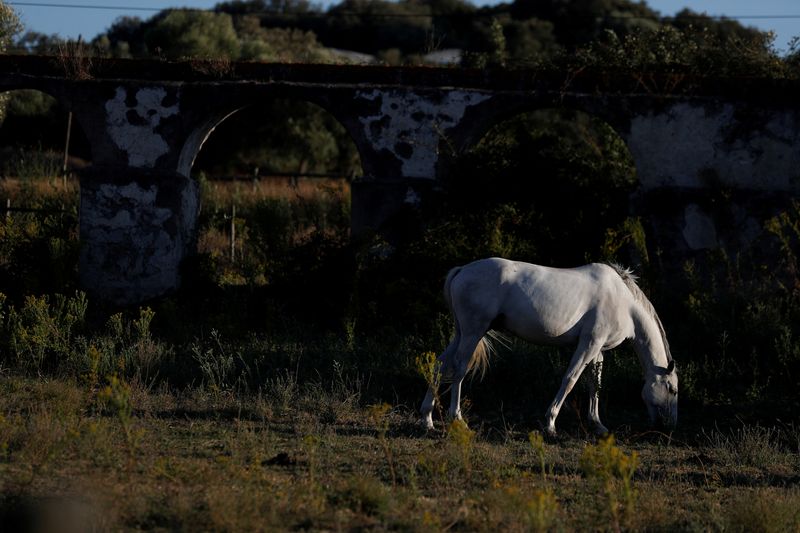LISBON (Reuters) – Facing a worrying winter drought, Portugal may have to limit irrigation of green spaces and use of water for street cleaning in the most affected regions, the environment minister said on Wednesday.
The southern European nation is facing its worst dry spell since 2005, with the area suffering severe or extreme drought doubling in the first two weeks of February to cover 91% of the territory, threatening crops and water supplies.
Earlier this month, the government ordered some hydropower dams to temporarily limit water use for electricity production and irrigation, prioritising human consumption instead.
Environment Minister João Matos Fernandes said more measures were “very likely” to be introduced as a result of ongoing meetings between the environment agency and affected municipalities.
The northeast and southern regions were particularly badly hit, and the dry weather conditions are likely to continue at least until the end of the month, weather agency IPMA said in a report.
Temperatures are above average for this time of the year, and there is close to no rainfall.
“What can be done is to implement new measures to restrict the use of water in agriculture and urban activities,” Matos Fernandes said, explaining that watering of green areas, street sweeping and cleaning of some equipment may be conditioned.
The minister said the government would allocate 5 million euros from its environmental fund to launch awareness campaigns about water use and implement “contingency measures” to tackle the drought.
Environmental groups say droughts at the start of the year have ceased being an anomaly in Portugal and should be viewed in the context of climate change. In past years, such dry spells have often led to massive wildfires come summer.
(Reporting by Catarina Demony; Editing by Andrea Ricci)






















